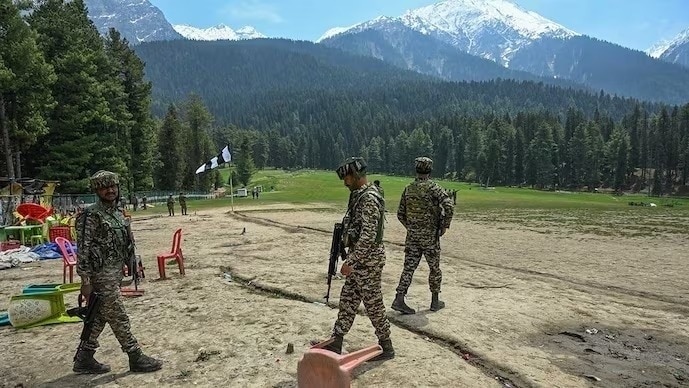As tensions simmer following the April 22 terror attack in Jammu and Kashmir’s Pahalgam that killed 28 people, voices from India’s strategic and military circles are calling for a response that goes beyond targeting terrorist operatives. The growing consensus: it’s time to strike at the core of Pakistan’s support infrastructure for cross-border terrorism.
Indian geostrategist and columnist Brahma Chellaney signalled the shift in tone, writing on X, “Modi is signalling a military response to the April 22 massacre. India should strike Pakistan’s terror masters, not just their terrorist proxies, when they least expect to be hit.” He added, “Pakistani forces now are on high alert. Costs should be imposed in a sustained and multifaceted way.”
Modi is signaling a military response to the April 22 massacre. India should strike Pakistan’s terror masters, not just their terrorist proxies, when they least expect to be hit. Pakistani forces now are on high alert. Costs should be imposed in a sustained and multifaceted way.
Backing the need for a broader approach, former Army Chief General Manoj Mukund Naravane wrote that India must act decisively but with a calibrated hand. “Each response must have a clear purpose with well-defined outcomes, the foremost being to force Pakistan to ‘credibly and irrevocably abjure its support to cross-border terrorism,’” he wrote in ThePrint.
Naravane argued that past responses—like the 2016 Uri surgical strikes and 2019 Balakot air strikes—though necessary, failed to deter Pakistan in the long run. He stressed the importance of digging deeper to strike at “the core issue and the centre of gravity” within Pakistan’s power structure.
While some analysts have floated the idea of a naval blockade of Karachi, Naravane urged caution. “Easier said than done. While we may have the capability, how will such a blockade be enforced? Foreign-flagged ships cannot be forced to stop or divert. Announcing a measure and then not being able to enforce it will only result in a major loss of face,” he wrote, underlining the importance of clearly defined end-states and rules of engagement.
Former Defence Intelligence Agency chief and 15 Corps Commander Lt Gen KJS Dhillon has also indicated that India’s response may be unprecedented in scope. “The Prime Minister very clearly said that it is going to be a very heavy response,” Dhillon told ThePrint. “This time, to my understanding, it is going to be a whole-of-nation approach.”
According to Dhillon, military, diplomatic, and strategic options could be deployed simultaneously or in a staggered fashion to keep Pakistan off balance. “It may be one single action. It may be a coordinated multiple action simultaneously. It could be a coordinated multiple action staggered in time and space. So that we keep the enemy guessing,” he said.
He warned that India’s message to Pakistan must be unequivocal: “Pakistan would be told in no unclear terms if you take any action in response to India’s actions, the retaliation will be so heavy that it would be unacceptable to Pakistan… We have to put an end to this nonsense once and for all.”








